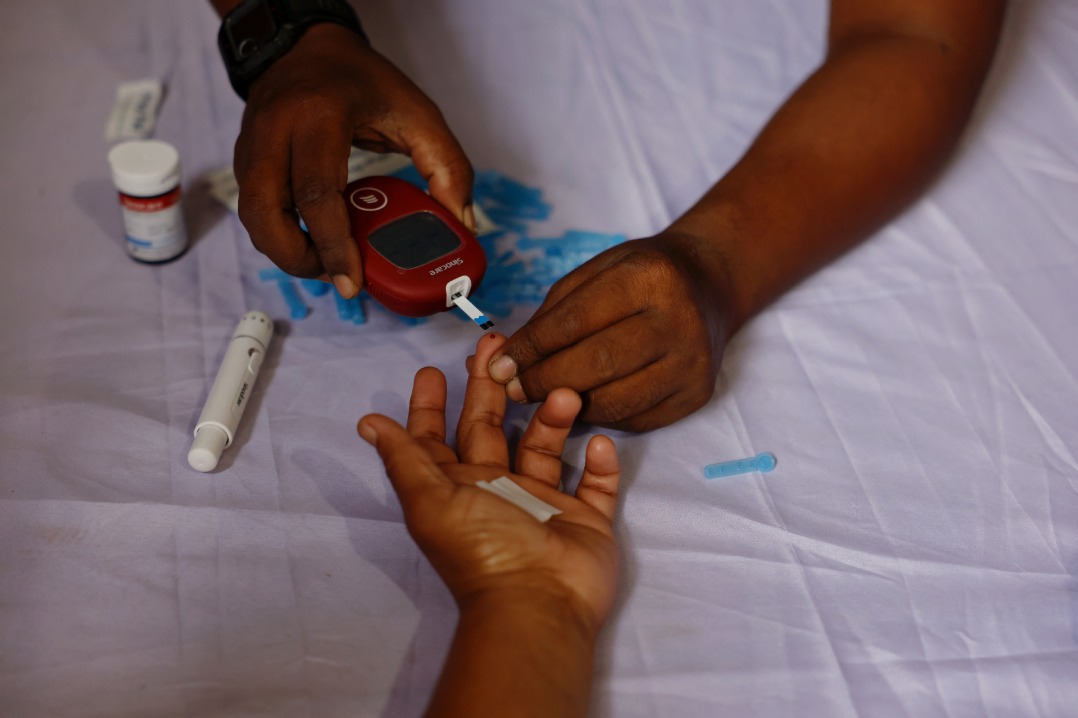Global diabetes cases double in past 30 years

Global adult diabetes cases have doubled to more than 800 million during the past three decades, far exceeding previous estimates, according to new research.
A groundbreaking study published in The Lancet this week reveals a healthcare crisis, with more than half of adults over the age of 30 who have diabetes going untreated.
Researchers highlighted the need for better diabetes screening and treatment in low- and middle-income countries, which have seen the sharpest rise in cases since 1990.
The analysis was a joint effort between the World Health Organization, or WHO, and the NCD Risk Factor Collaboration, a global network of health scientists and researchers that collects and analyzes data on non-communicable disease risk factors.
According to the study, the combined prevalence of type 1 and type 2 diabetes among adults has surged from 7 percent to 14 percent globally over 30 years.
It noted that four nations accounted for more than half of global diabetes cases, with India having the most at 212 million cases, followed by China with 148 million, the US with 42 million, and Pakistan with 36 million. Previous WHO estimates had put the total number of global diabetes cases at 422 million.
Pacific island nations, along with parts of the Caribbean, Middle East, and North Africa, reported the highest diabetes rates globally, exceeding 25 percent of adults. Among wealthy Western nations, the US leads with 12.5 percent, followed by the UK at 8.8 percent.
While the number of diabetes cases has soared, treatment rates in some regions have remained almost stagnant, the authors noted, even as some higher-income countries have made significant progress, creating an expanding treatment divide.
Senior author Majid Ezzati, a professor at Imperial College London, said: "This is especially concerning as people with diabetes tend to be younger in low-income countries and, in the absence of effective treatment, are at risk of life-long complications — including amputation, heart disease, kidney damage or vision loss- or in some cases, premature death."
The study provides the first worldwide assessment of diabetes trends, drawing from data of more than 1,000 studies involving more than 140 million adults.
The findings drew a stark warning from WHO Director-General Tedros Adhanom Ghebreyesus.
"We have seen an alarming rise in diabetes over the past three decades, which reflects the increase in obesity, compounded by the impacts of the marketing of unhealthy food, a lack of physical activity, and economic hardshi," he said.
"To bring the global diabetes epidemic under control, countries must urgently take action. This starts with enacting policies that support healthy diets and physical activity and, most importantly, health systems that provide prevention, early detection, and treatment."
































